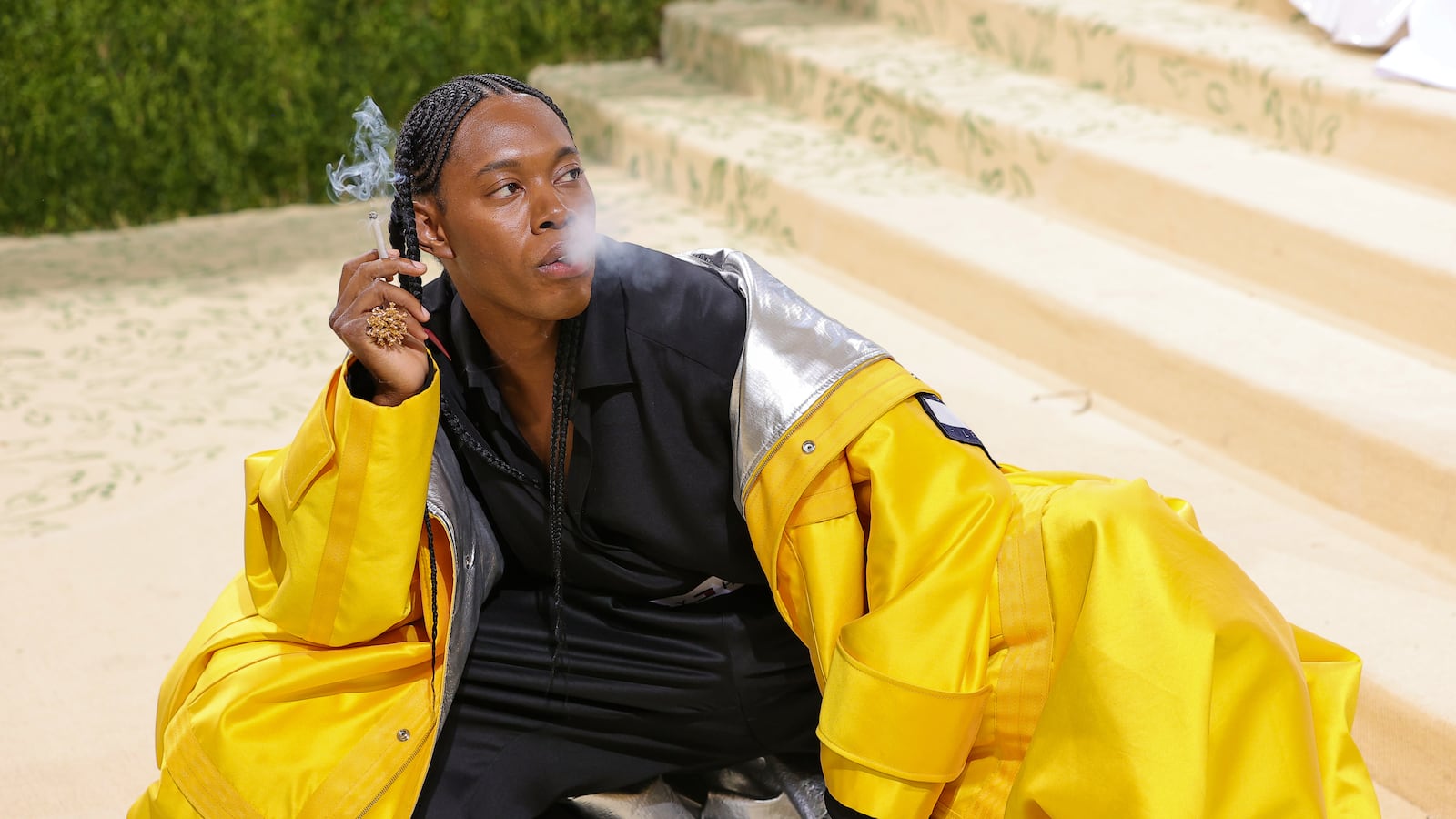For the past few days, critic and comedian Ashley Ray, and Tony-nominated playwright Jeremy O. Harris have been clashing on Twitter about Harris’ controversial Slave Play—a satire involving rape, mammy costumes, excessive use of the N-word, and abusive visuals, including a Black woman forced to eat cantaloupe off the ground. It recently broke the record for the most Tony Award nominations in history (before going 0-for-12 in awards).
Having read Slave Play, which is about a group of interracial couples participating in “Antebellum Sexual Performance Therapy” as a means of resolving the Black partners’ intimacy concerns, I haven’t been interested in seeing it performed. But the issue in Harris’ exchange with his critics has not been about whether or not the play is the “provocative,” “funny, scalding, walk along the boundary between black and white in America” that mainstream critics saw it as, but about where a Black woman can express her genuine feelings about Slave Play and its portrayal of women without the playwright freaking out. The answer, clearly, is no.
Although both Harris and Ray identify as Black, in situations where gender and race are at the root of the production, intersectionality matters. It’s one thing for a Black man to make a play that involves race, but when he uses Black women as a source of sexual exploitation, they open themselves up to a different level of expectation, responsibility, and explanation.

Taking on a play that shows "no consideration for black women.”
Tommaso BoddiThe dust-up started after Ray saw Slave Play with Black TV writer Kyra Jones, and tweeted a viral thread about why she took issue with Harris’ script and how she felt it “has no consideration for black women.”
Ray references a line—one of many cringey ones in the play—in which a Black female character named Kaneisha says “the elders don’t care that you are a demon, they lay with them too… they just want you to know it” in reference to her interracial relationship with a white man.
“My elders, my ancestors did not ‘lay’ with demons,” Ray tweets. “They were forced by demons, raped by demons, hurt by demons, some of them were children, little girls who had everything taken from them by demons in a way i can never experience having consensual sex with a white person.” (Jones, who has written for shows including ABC’s Queens and Hulu’s Woke, replied to the thread adding her own concerns about Slave Play as a Black woman.)
In response, Harris, who has garnered a reputation on other projects he has worked on for being oversensitive about criticism, went on the attack, accusing Ray of “blatantly misrepresenting staging, audience interactions, & my writing for likes.”
Then he tried to dunk, saying it’s “always great to have loud detractors engage your work but I feel like I should pay @theeashleyray for the sheer breadth of her free PR.”
While he boasted about the play’s sales, he did not engage with Ray’s concerns, which amplified those that several Black critics, among others, had about the play. As Ray replied, “i never said people shouldn’t see it, i think ppl should engage with it themselves. it just so happens a lot of people thought i articulated something they hated”
Instead of engaging with or quietly taking in Ray’s criticism, Harris pulled the look-how-many-people-saw-it-so-it-must-be-good card that people with some level of fame often use to avoid accountability and responsibility for their work—sort of like someone saying that “Green Book must not have been bad because it won the Oscar for Best Picture.”
So how does Harris skip past Ray’s concerns about the misogynoir and disregard for Black ancestry in his play? He posted a TikTok video of a sea of Black people, including a number of influential folks, who watched his show, and tweeted about going into Ray’s DMs to personally invite her to come see it. Again, he defensively played the “look who likes it” card rather than defend his work on the merits in response to concerns expressed by a Black woman who he’d invited to see and engage with it.
Harris’s deflections reveal that he’s only looking for more fans, not critical thinkers. Imagine creating something so visceral, uncomfortable, and taboo and then expecting people to only praise it. If Slave Play is supposed to provoke emotions in people, why be so damn sensitive about the responses? Especially when the source of that frustration is coming from Black women, in a play that focuses on them.
Harris literally made a play about interracial couples engaging in problematic sex under the context of slavery—how in the fuck does he not expect to be challenged on that?





